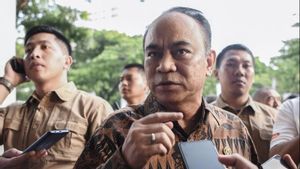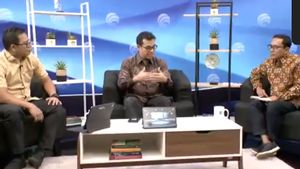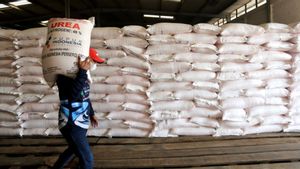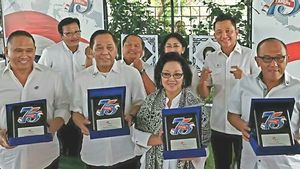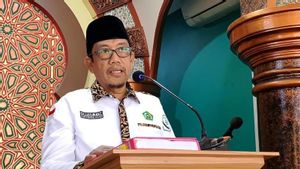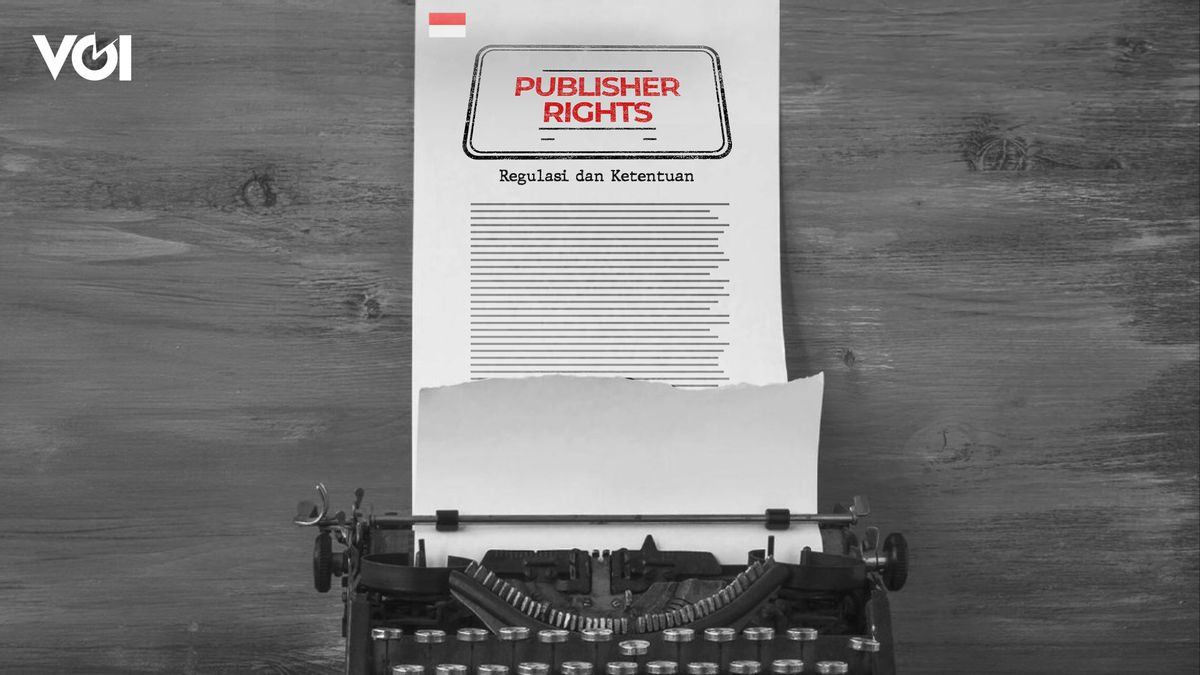
JAKARTA - It is no secret that currently public rights will benefit big media such as in the Kangaroo country. However, small solidity between media needs to be improved so that the goal of the public rights to create quality journalism can occur and be realized.
What about the fate of the little media there? They initially had difficulty negotiating because the Digital Platform was reluctant to negotiate with the small media. Until at some point, the Australian Finance Minister was firm in forcing digital platforms to negotiate with small media collectively. The results so far have been very encouraging for the sustainability of the small media.
Director of Economic Digital Center of Economic and Law Studies (Celios) Nailul Huda hopes that the Presidential Regulation Publisher Rights will be implemented based on the principle of justice, where there must be a separation of business models between news aggregators and social media.
He said that the separation of business models needs to be done because the business patterns of news aggregators are different from social media, where news aggregators collect news so that they can be read easily by their users. Meanwhile, social media generally does not collect news, but news account investigators upload it on their respective social media accounts.
In order to complete the study of compiling a presidential regulation on Publisher Rights, Minister of Communication and Information Johnny G. Plate at that time, admitted that he needed to conduct a study of the European Union Digital Market Law (DMA) and the European Union Digital Services Law (DSA). Jonny admitted that the law was a reference and became a discussion material so that the regulations made could be appropriate and suitable for implementation.
관련 항목:
Rules similar to Publisher Rights, have also existed and implemented in several countries with the aim of saving the media ecosystem due to digital disruption. For example in Canada under the name Bill C-18, and in Australia under the name News Media Bergaining Code Law. Rules about Publisher Right have also been implemented by the European Union since 2019. Digital platforms such as Facebook and Google have been asked to pay for news produced by 300 media in the European Union.
Over the past three years, countries such as Germany, France, Hungary, Austria, the Netherlands, and Ireland have continued to discuss adopting a rule called the Guide to European Copyright to implement their country. Discussions and implementing the same plan are also being carried out by the American state.
According to the Director General of IKP of the Ministry of Communication and Informatics, Usman Kansong, in the Asian region, which has implemented a public rights rule or issuer rights, namely the obligation of digital platforms to cooperate with press companies to support quality journalism is Indonesia after Australia.
The implementation of the Presidential Decree of Publisher Rights was appreciated by a number of experts and they asked the government to maintain the implementation of the regulation, although there has been no backlash from digital platform companies such as Google and Facebook in responding to the implementation of the regulation and facing the potential for a number of companies to leave Indonesia.
Chairman of the Inter-Institutional and Foreign Relations Commission of the Press Council, Agus Sudibyo, explained that the Publisher Rights is the right of media managers related to the private aggregation process, which has the passion to regulate, reducing the excessive monopoly of digital platforms.
According to Agus, state intervention is needed not to fight digital platforms, such as Google and Facebook, but to make the tech giants not make a monopoly of excessive economic camps.
"If the media dies because of its own mistakes, then there is nothing we can do, but if the media dies because the system is not supportive, it is highly monopolistic, there must be intervention from the state. In addition, the public right can also care for quality journalism, and ensure the sustainability of the national media industry. " said Agus.
According to him, the issuer's right is an important step to create a fairer and more sustainable media ecosystem in Indonesia. The application of the Issuance Rights is expected to help media companies get fairer income, improve the quality of journalism, and strengthen democracy," he said.
MNC Group Executive Chairman Hary Tanoesoedibyo quoted Nielsen, where online readers far surpass print readers. Print media readers are only 4.5 million per day and will continue to fall along with the development of digital media. While online media readers are 6 million per day. This number will continue to rise. Print media must wait 1 day and pay, instant and free online media," he said.
He also quoted the Constitutional Court Decision Number 78/PUU-XVIII/2020 dated September 29, 2020, namely the application of PT Nadira Intermedia Nusantara regarding the release of the Subscription Broadcasting Institution (LPB) to broadcast the broadcast of the Private Broadcasting Institution (LPS). This decision states that copyright is an exclusive right from copyright owners and prohibits others from implementing or using copyright without the approval of copyright holders
"LPB is prohibited from re-broadcasting (redistribution) in any form without permission from the LPS holding copyright for broadcast content," he said.
Therefore, aggregation in any form by aggregator/search engine on public content must have a permit or mutual agreement. According to him, aggregation without permission, especially commercialized in the form of copyright infringement in accordance with Law no. 28 of 2014 concerning Copyright. It is recommended that the public together through the Press Council and/or AMSI strive for the benefit of the public so that there is a share of income (advertising/subscribing) results," he suggested.
Previously, in his press statement, some time ago, Chairman of the Press Council Mohammad Nuh stated that the essence of the presence of the press must be able to sew all the strengths of the nation. "We must continue to build togetherness, the essence of fellow press is that sewing is not to'reread', but to sew all the strengths of this nation, so that it becomes a dress that is pleasing to the eye and provides the greatest benefit," he said.
The same thing was conveyed by Nezar Patria, that this Presidential Regulation regulates in detail the two points. Digital platforms are required to facilitate quality content created by a publisher in accordance with the Press Law.
"First to support quality journalism and second to maintain the sustainability of the press media industry in Indonesia. This Presidential Decree regulates in detail the two points. Digital platforms are required to facilitate quality content created by a publisher in accordance with the Press Law. Then provide the best efforts in designing algorithms, which provide a place for quality journalism. In order to maintain the sustainability of the media, it is regulated about profit sharing, such as frame-work for B2B cooperation (Business-to-business), between the publisher and digital platforms. It could also be for aggregate data, paid licenses, and other forms of cooperation, please manage it yourself. The important thing is that collaboration is mutually beneficial and fair," he said.
"This Presidential Regulation only regulates commercialized news content. Content creators are not regulated even though the makers are journalists who work on all professional media," he said.
He considered that the most important thing right now is the synergy and convergence. "In the end, it was the legitimacy of the news, the accuracy of that information, and speed is the essence, so what we initiated today this quality journalism is really the right way."
As the right way to build synergies so that the press can play a role in sewing the nation's strength. According to him, this quality journalism certainly has a condition, namely that the sustainability of the press industry itself must always be maintained and the two press independences must also be ensured. "From there, the quality and protection of fellow journalists, the welfare of fellow journalists is a part that we cannot separate," he said.
The English, Chinese, Japanese, Arabic, and French versions are automatically generated by the AI. So there may still be inaccuracies in translating, please always see Indonesian as our main language. (system supported by DigitalSiber.id)


